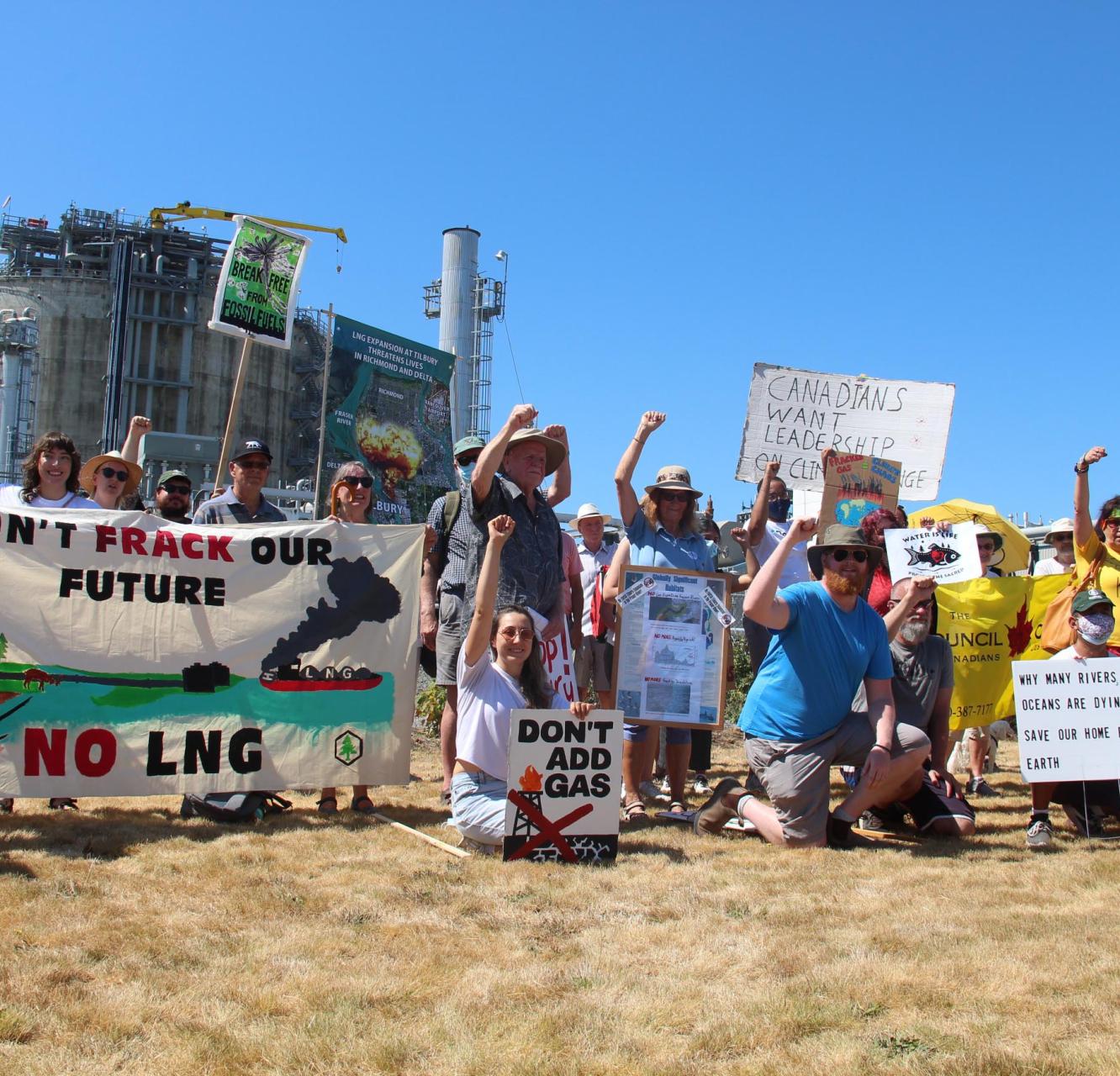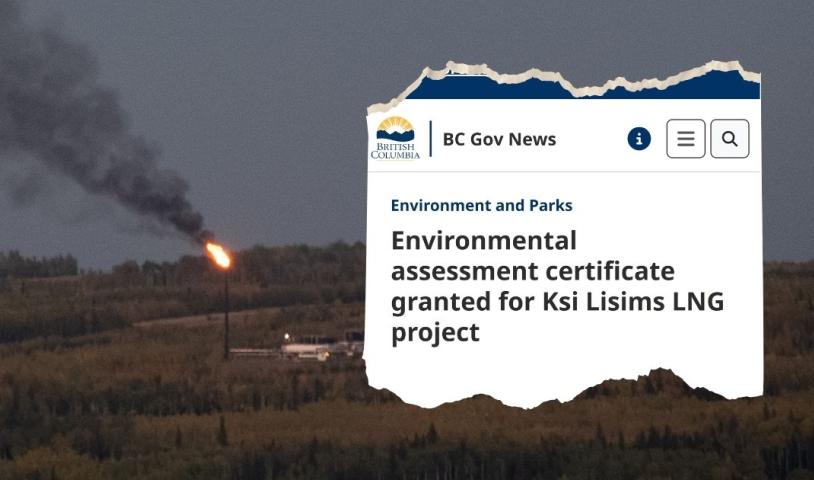Dangers of fracking relayed
Wednesday, May 15, 2013
Fracking is a process that can not only contaminate and diminish water supplies, lead to earthquakes and increase greenhouse gases, it will take money out of your pocket.
This message was one that two members of the Vancouver-based Wilderness Committee, Eoin Madden and Joe Foy, brought last Wednesday to the Sullivan campus theatre filled with Salmon Arm Secondary students enrolled in related studies.
Madden explained that fracking, or hydraulic fracturing, is a way of getting gas out of shale formations under the earth’s surface by pressurizing a mix of sand, water and chemicals into a drill hole so that rocks below are cracked, releasing gas which finds its way up to the surface.
“When the water comes back up it’s a horrible mix of deadly chemicals, sand… so they leave it in huge big ponds,” Madden said. It is then trucked out.
He noted that the provincial government is saying the way to secure the future of B.C. is to build LNG (or liquid natural gas) plants – plants that produce greenhouse gases.
He pointed out that everyone who is young pays the price for climate change, a cost which could be trillions.
“When oil and gas companies are making bad decisions on your future, it’s like taking money out of your pocket... The loss of biodiversity and species... you have to think how much it’s costing you...”
“We’ve seen in other countries like Germany it’s possible to make lots and lots of jobs that don’t make problems for the future and give you jobs you can be proud of...,” he said. “There are lots of clean jobs you don’t hear about every day.”
As well as producing greenhouse gases, methane gas and toxic chemicals can leach out and contaminate nearby groundwater during fracking. The water coming out of taps in some places in North America can be lit with a match, he said. Fracturing also consumes water, with one fracture using 400 swimming pools’ worth.
“This is a bad deal for B.C. We expend one gigajoule of energy to get just two gigajoules back. The ratio for conventional gas is 15 to one,” he said, adding that the jobs predicted in 2020 “are probably not even enough jobs for this town.”
A government report stated climate change could cost Canada $5 billion in 2020 and double that by 2050, he said. Meanwhile LNG royalty forecasts are far less.
“It’s really irresponsible to say we have jobs secured for your future. It really doesn’t add up.”
Joe Foy told the students that hiking in the beauty of the Stein Valley wilderness led to his passion for protecting the environment. He was instrumental in a successful campaign opposed to a proposal to log the pristine valley.
“What it taught me was, we build our own future. We get what we work for. We have that possibility in this part of the world. We can talk, we can think... We are protected by our rights and freedoms. We can make changes – and sometimes it’s not easy.”
Foy, too, relayed a lot of information including warning of dangerous trade deals being signed by the federal government.
He also said the provincial government’s run-of-river projects didn’t sound bad when proposed. However, private companies staked B.C.’s rivers, with BC Hydro signing $50 billion worth of contracts to purchase the energy. However, he said, the energy was so expensive, BC Hydro can’t sell it at a profit.
“Now we’re on the hook for $50 billion.”
He said the Site C Dam, which will sink a lot of important farmland, will cost about $10 billion.
He warned: “LNG has the potential, like the run-of-river, to make us poor.”
Foy said the B.C. election is an exciting time, urging students to pay attention to what parties are saying.
Regarding environmental protection, he concluded: “You and I all do things to make our lives better, but there are things we must do collectively. “




